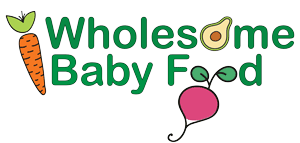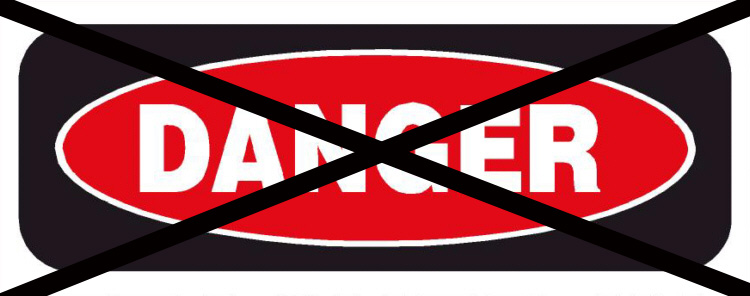On 12 September 2013 pediatrician and author Dr. Joanna Dolgoff appeared on Fox News to talk about the British study indicating that homemade baby food was more nutritious than store bought baby food. I was eager to hear what the doctor had to say about the study as so many of the study points seemed to have gotten lost in all the media hype.
In particular, a huge point of the study is this – there is no nutritional benefit for infants to begin eating (weaning to) commercial baby foods between the age of 4-6 months old. Compared to breast milk and/or formula, commercial baby food is nutritionally inferior between 4-6 months of age and babies should not be eating jars of baby food before they are 6 months of age. In light of this, the study showed that if babies were fed homemade baby foods at 4-6 months of age, that these homemade foods were likely more nutritious and would probably provide more nutrition than the jars of baby food.
Sadly, I did not hear any of these aspects discussed. Instead, what I heard the doctor say was (a bit) off topic, inaccurate and probably just about enough to scare parents away from trying to make homemade baby food for their children.
You Have to be Careful!
Dr. Dolgoff noted that “you have to be careful because there are a lot of risks with homemade baby food” and continued to stress that “you need to be really careful”. Now I am in 100% agreement that you need to be careful and pay very close attention to proper hygiene when preparing foods, particularly when preparing foods for babies. There is no doubt that you can’t be lax in the cleanliness department when making homemade baby foods.
What made me shake my head in sadness was the presentation, tone of voice and mannerisms of the doctor when she was speaking about concerning aspects of making homemade baby food. If I was a new parent who pondered the possibility of making baby food, this interview would have made me think twice. I was left with the impression that it really was not a good idea to try and make homemade baby food. I was left feeling like you should probably stick with the jars because, after all , “XYZ Baby Food knows best”. This is one topic that I will be discussing when I attend the Florida – Sunshine State La Leche League Conference in October. It is an important topic!
Danger Danger
There is one “scary” topic surrounding homemade baby food and the truth is constantly struggling to break free. This topic is the issue of nitrates. When I heard the doctor begin to speak to this issue, my hopes for firm reassurance of the safety of “nitrate” vegetables were dashed and crushed.
You see, Dr. Dolgoff spoke to the issue of nitrates and to the “danger” of making certain vegetables due to “life threatening anemia”. [Methemoglobinemia, a.k.a Blue Baby Syndrome, a blood disorder in which an abnormal amount of methemoglobin — a form of hemoglobin — is produced. Hemoglobin is the molecule in red blood cells that distributes oxygen to the body. Methemoglobin cannot release oxygen. In methemoglobinemia, the hemoglobin is unable to release oxygen effectively to body tissues. The body suffocates]
I wanted to pull my hair out and I actually said out loud “Are you kidding me? Don’t you know your own governing body’s position on nitrates and making homemade baby food?”. My husband, who was working from home, thought we had company and he laughed when he realized I was talking to the screen; the laugh did not last long let me tell you.
This is what the doctor said, at the mention of pureeing spinach:
Interesting you mentioned spinach because that is one of the very dangerous foods to make homemade.
<”really?” asks the interviewer>
Yes, because they contain nitrates. So things like carrots, and squash and green beans and spinach and beets, they have nitrates which can cause a life threatening anemia in a baby. So you want to be careful.
When it’s a store bought version of these foods, the companies test for the nitrates so you know it’s safe. So we say you don’t want to make homemade baby food out of any of those particular vegetables.
<”And there are also bacterial concerns” chimes in the interviewer>
Did I really just hear a doctor say this? I was shocked, let down and totally mortified and then, I became very angry.
Throughout my 10 years of trying to show parents that homemade baby food is a healthy and safe (better) alternative to jarred commercial baby food, a doctor – a DOCTOR – manages to tell the world that the AAP recommends NOT making homemade baby food due to nitrates. This statement is completely incorrect and misguided. Shameful. There was no mention of the fact that well water is a far greater risk of nitrate poisoning in infants. The AAP recomends that parents (especially those who are mixing formula) should be testing their well water (before they worry about the carrots in the veggie bin) consistently. As I write this post, I am angry again. This is why it has taken me so long to write about this; each time I try to write I feel like my head is going to explode!
The Truth Shall Set You Free
So what should you believe about nitrates? Here are the facts:
- Nitrates are a product of our universe, they are naturally occurring and nitrates are in the soil and in plants for example.
- Nitrates are also created in a lab and manufactured to be used as fertilizer.
- Nitrates are found in ground water and hence in well water – well water is a greater source of the risk of nitrate poisoning than foods are.
- Nitrates – can be screened for but CANNOT BE REMOVED from foods – commercial baby foods have nitrates too!
- Nitrates can cause the hemoglobin to stop transporting blood when a person has ingested too much of something that contains nitrates.
- Babies under the age of 3 (three) months old should not eat foods that are known to contain nitrates – carrots, leafy greens such as spinach for example.
What about the warnings to NOT make carrots, spinach, etc at home due to nitrates?
These warnings are alarmist and inaccurate. The policy papers of the American Academy of Pediatrics makes it quite clear:
- Because the intake of naturally occurring nitrates from foods such as green beans, carrots, squash, spinach, and beets can be as high as or higher than that from well water, these foods should be avoided before 3 months of age, although there is no nutritional indication to add complementary foods to the diet of the healthy term infant before 4 to 6 months of age.14,15 – AMERICAN ACADEMY OF PEDIATRICS – Infant Methemoglobinemia: The Role of Dietary Nitrate in Food and Water; Frank R. Greer, MD, Michael Shannon, MD, the Committee on Nutrition, and the Committee on Environmental Health
- “Around the age of three months, an increase in the amount of hydrochloric acid in a baby’s stomach kills most of the bacteria that convert nitrate to nitrite. By the time a baby is six months old, its digestive system is fully developed, and none of the nitrate-converting bacteria remain. In older children and adults, nitrate is absorbed and excreted, and Methemoglobinemia is no longer a concern.” http://ohioline.osu.edu/b744/b744_2.html
- Because vegetables, including green beans, carrots, squash, spinach and beets, can have nitrate levels as high or higher than that of well water, infants should not eat these foods until after age 3 months. http://www2.aap.org/advocacy/releases/sept05wellwater.htm
- As Dr. Greene notes: “The core issue is the age of the baby. The official AAP guidelines on nitrates say: “Home-prepared infant foods from vegetables (e.g., spinach, beets, green beans, squash, carrots) should be avoided until infants are 3 months or older.” (Emphasis mine). I wish these guidelines were more widely repeated. Nitrates are mostly a risk to the lingering fetal blood cells that are gone by around three months of age. By six months, the stomach acidifies, and the risk plummets further. Dr. Greene on Nitrates
Now then, I hope that clears everything up!
Go Forth and Puree!

